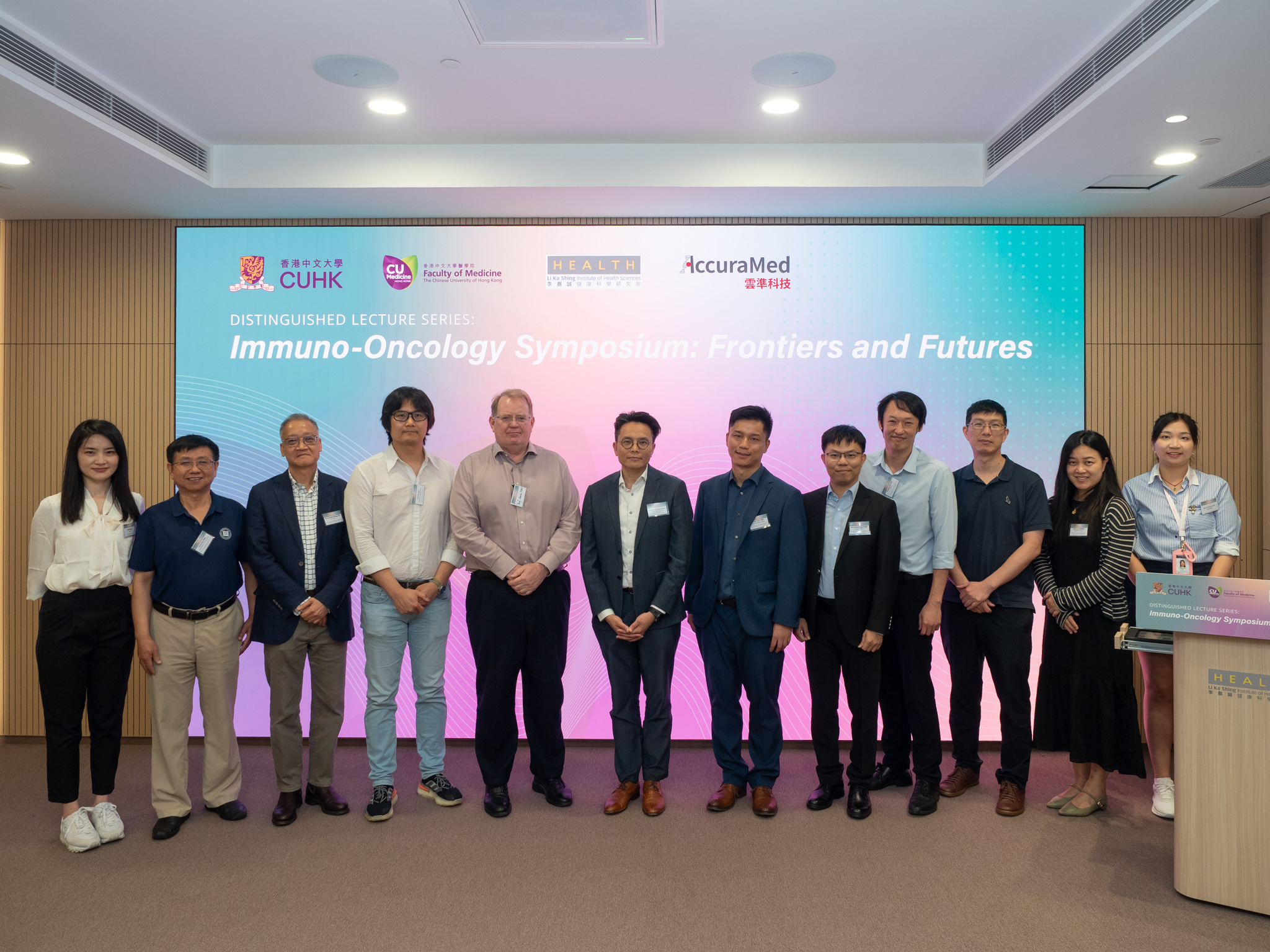
Immuno-Oncology Symposium: Frontiers and Future
On the afternoon of July 3, 2025, the AIC Immuno-Oncology Symposium: Frontiers and Futures concluded successfully at the Li Ka Shing Medical Sciences Building at Prince of Wales Hospital in Hong Kong. The event brought together five leading experts and rising talents from around the world, who delivered a series of brilliant academic presentations and engaged in lively, in-depth discussions with the audience.
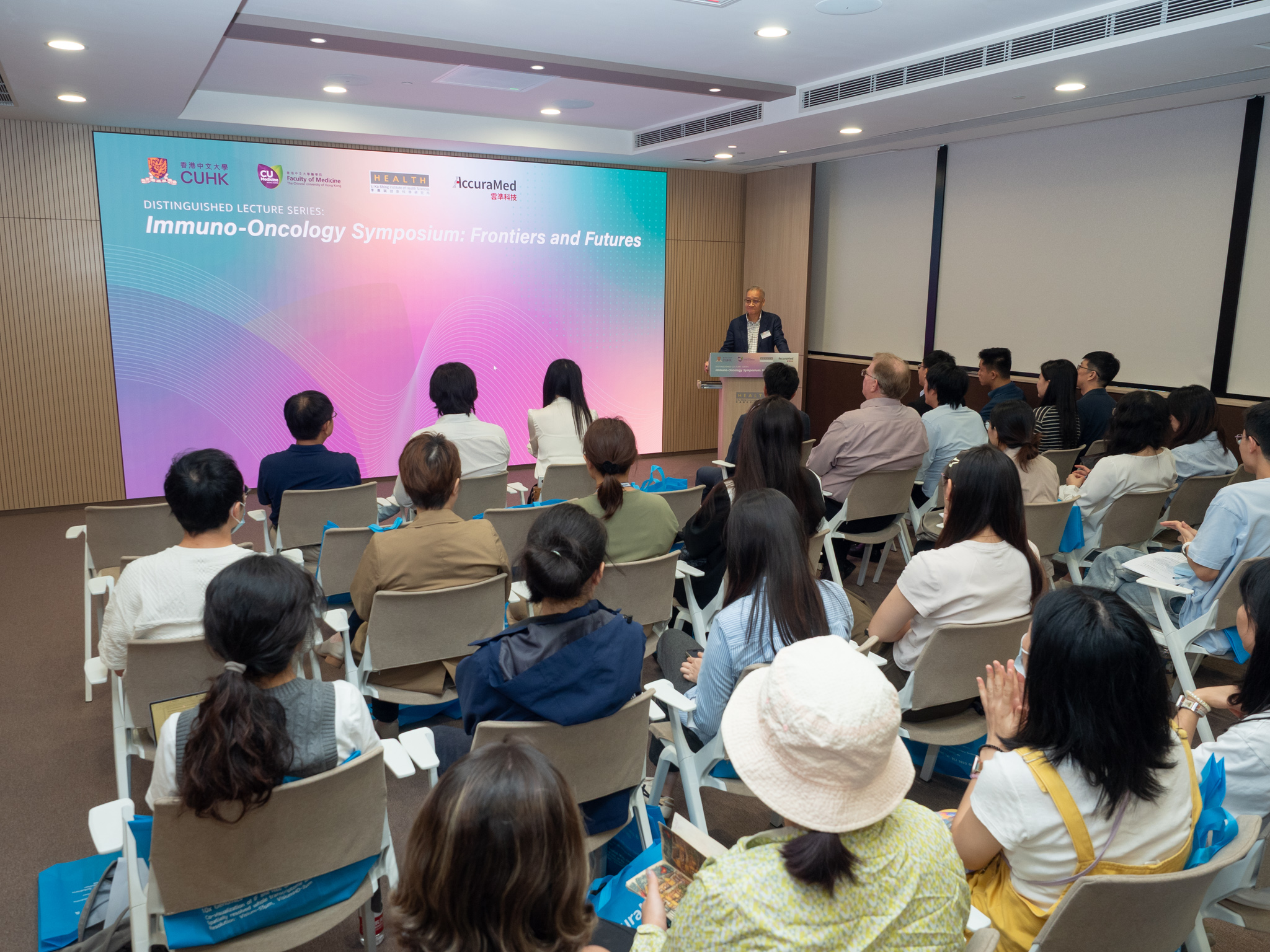
The symposium commenced with opening remarks from Prof. Kwok-Ming Ho, Chairman of the Department of Anaesthesia and Intensive Care (AIC) at The Chinese University of Hong Kong (CUHK).
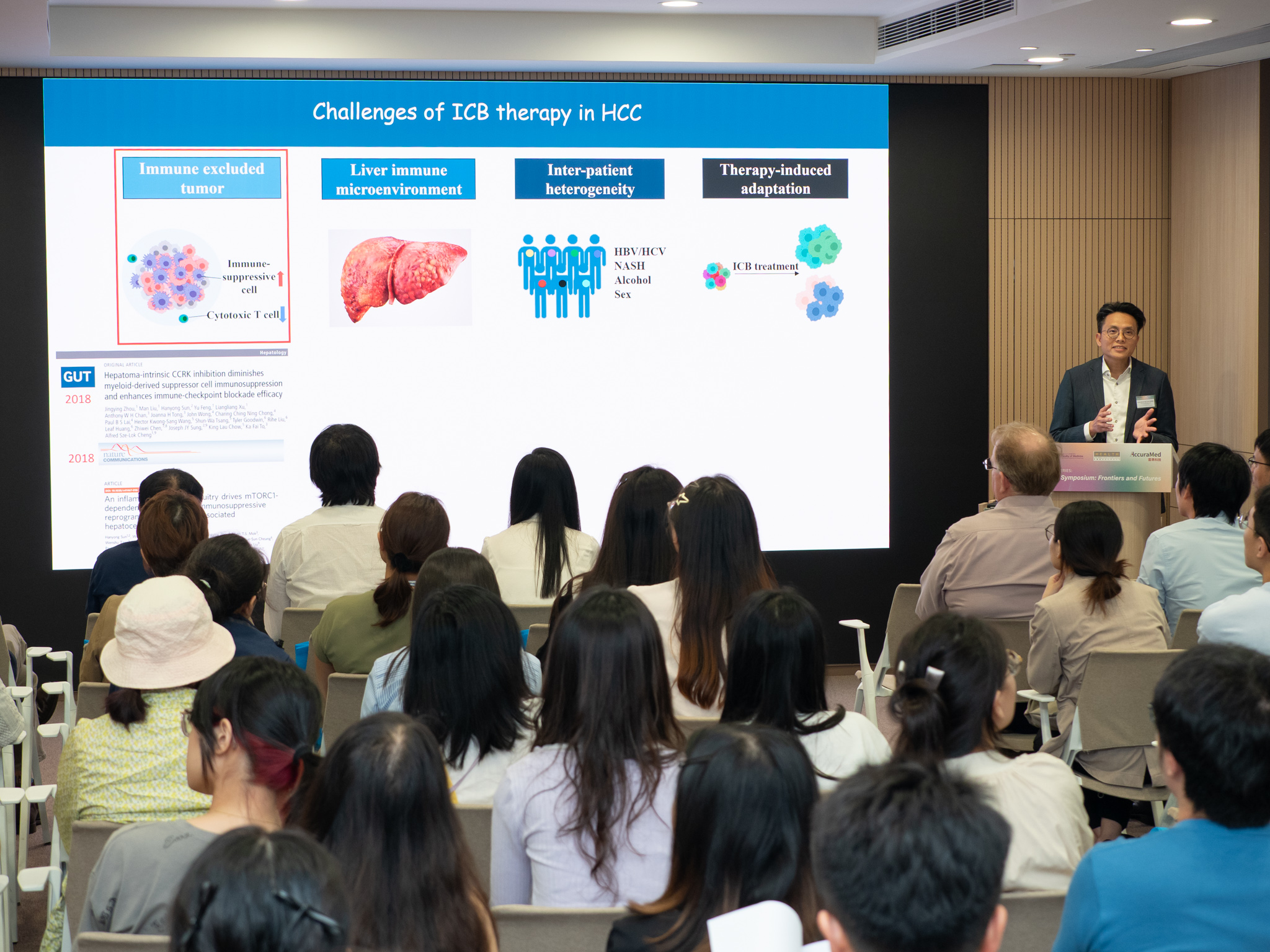
Prof. CHENG Sze Lok Alfred from School of Biomedical Sciences at CUHK was the first to take the stage. In his talk, “Metabolism-immune microenvironment crosstalk epigenetically mediates immunotherapy resistance,” he reported novel subset of macrophages within the hepatocellular carcinoma tumor microenvironment. These macrophages scavenge lipids from cellular debris to fuel tumor growth while suppressing anti-tumor immunity, ultimately driving immunotherapy resistance.
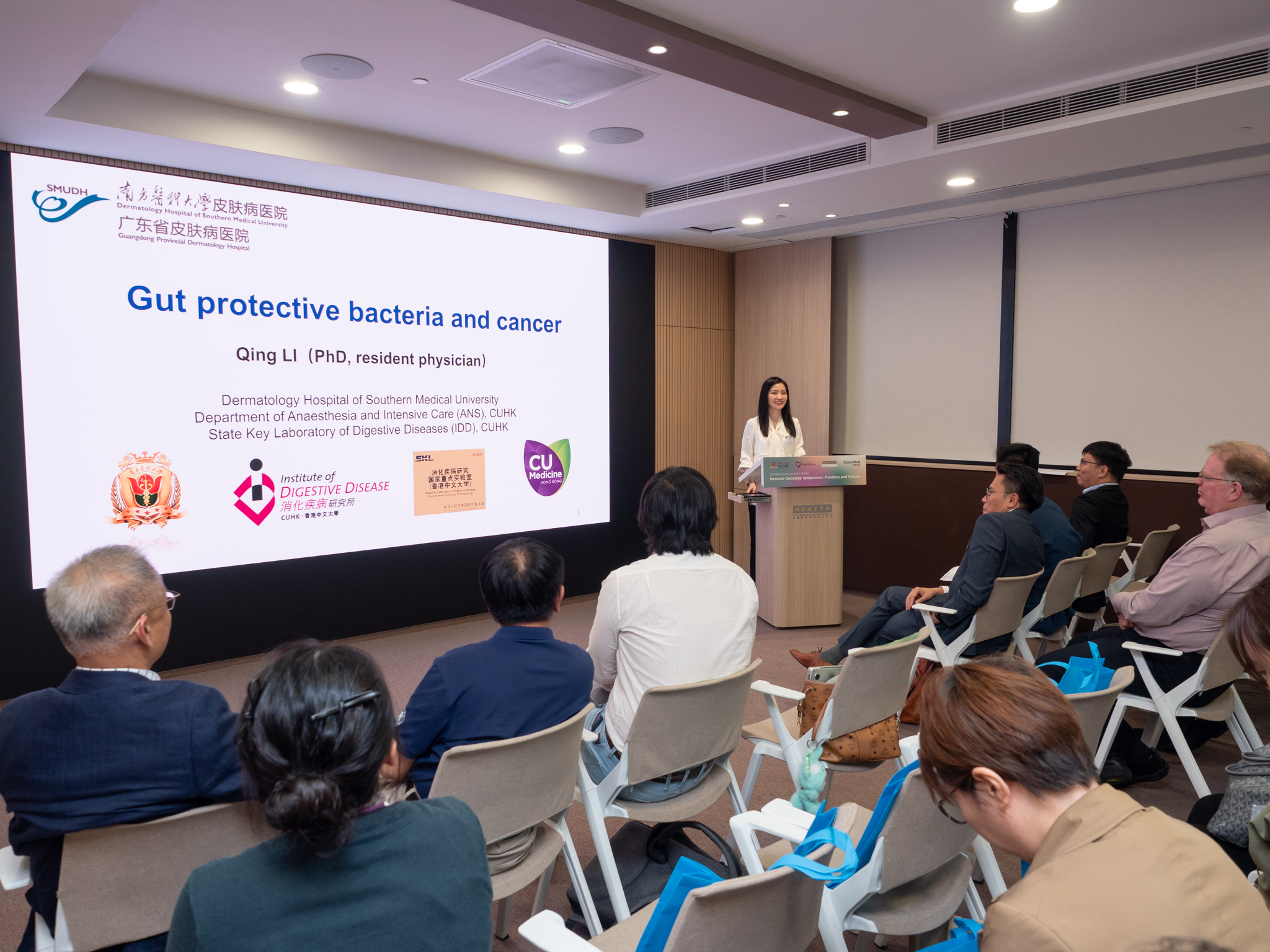
Next, Prof. Li Qing from the Institute of Dermatology at Southern Medical University presented her talk, “Gut Protective Bacteria and Cancer.” Drawing upon her extensive research at both CUHK and Southern Medical University, she revealed how specific probiotics can profoundly influence the development of colorectal cancer, either in ways common to both males and females or in a gender-specific manner, and demonstrated that some exhibit a potent impact on cancer immunotherapy efficacy.
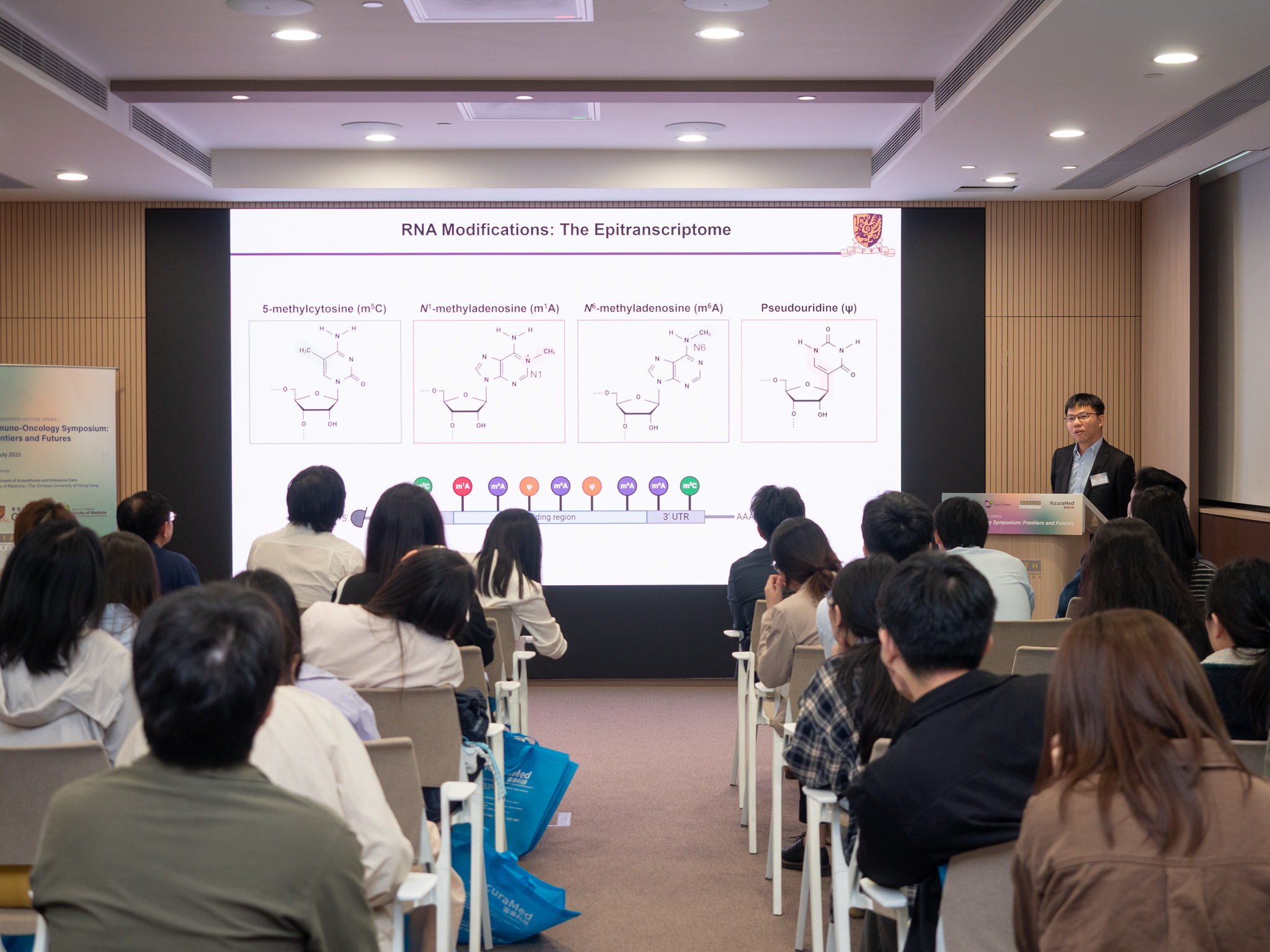
Prof. Chen Huarong from AIC focused on the field of epitranscriptomics in his presentation, “CRC-Intrinsic Epitranscriptomics Govern Anti-Tumor Immunity.” He shed light on how key m6A regulators, such as METTL3 and YTHDIT1, help tumor cells recruit myeloid-derived suppressor cells (MDSCs) to construct an immunosuppressive microenvironment, thereby enabling the tumor to evade immune surveillance.
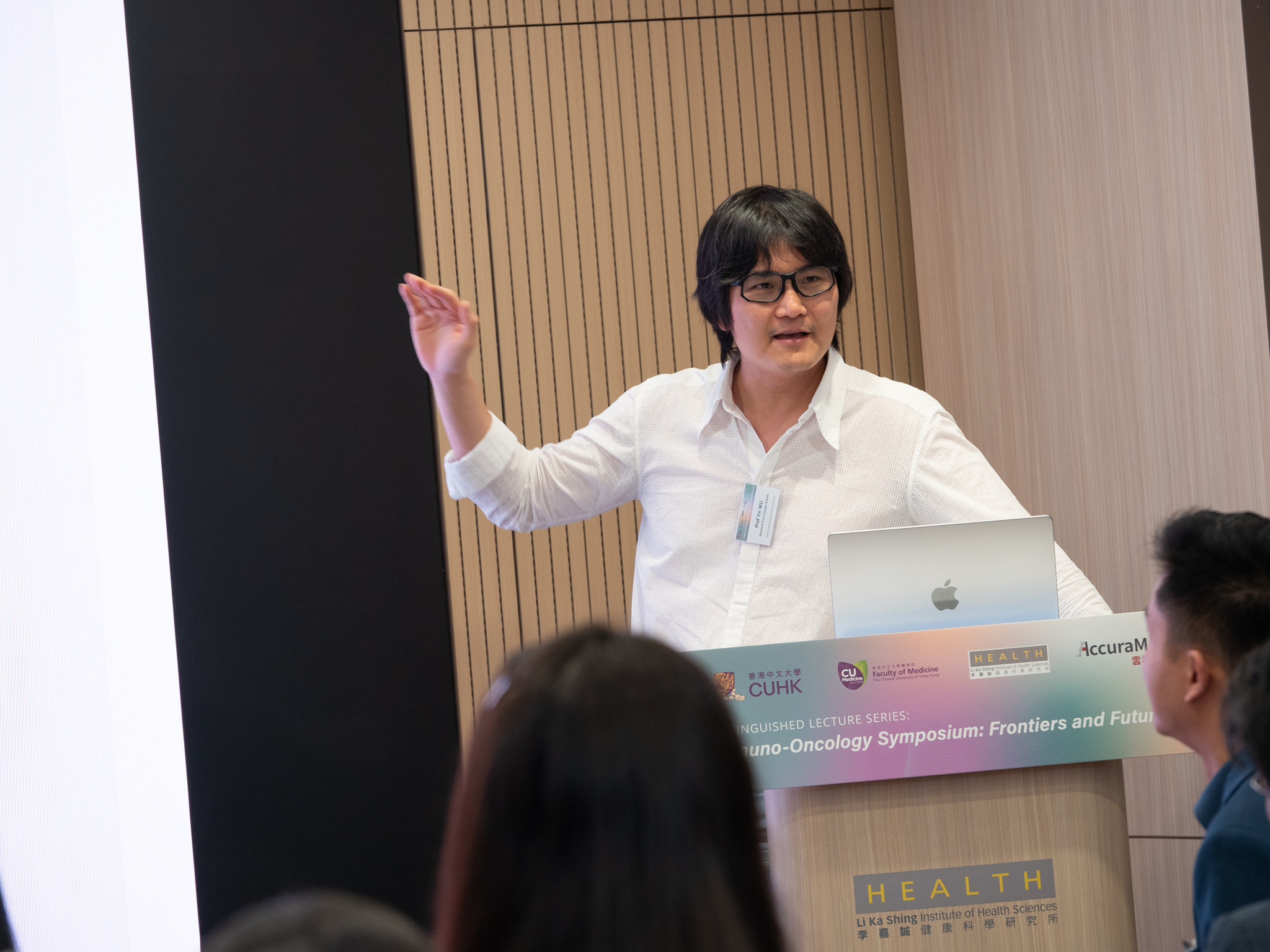
Dr. Yin Wu from King’s College London, who traveled a long way to join the event, delivered a talk titled “γδ T cells in cancer – should we care?” In a witty and intuitive style, he explained the crucial role that gamma-delta T cells, a minority population in the immune system, play in anti-tumor immunity by leveraging their unique advantages in antigen recognition and tissue residency.
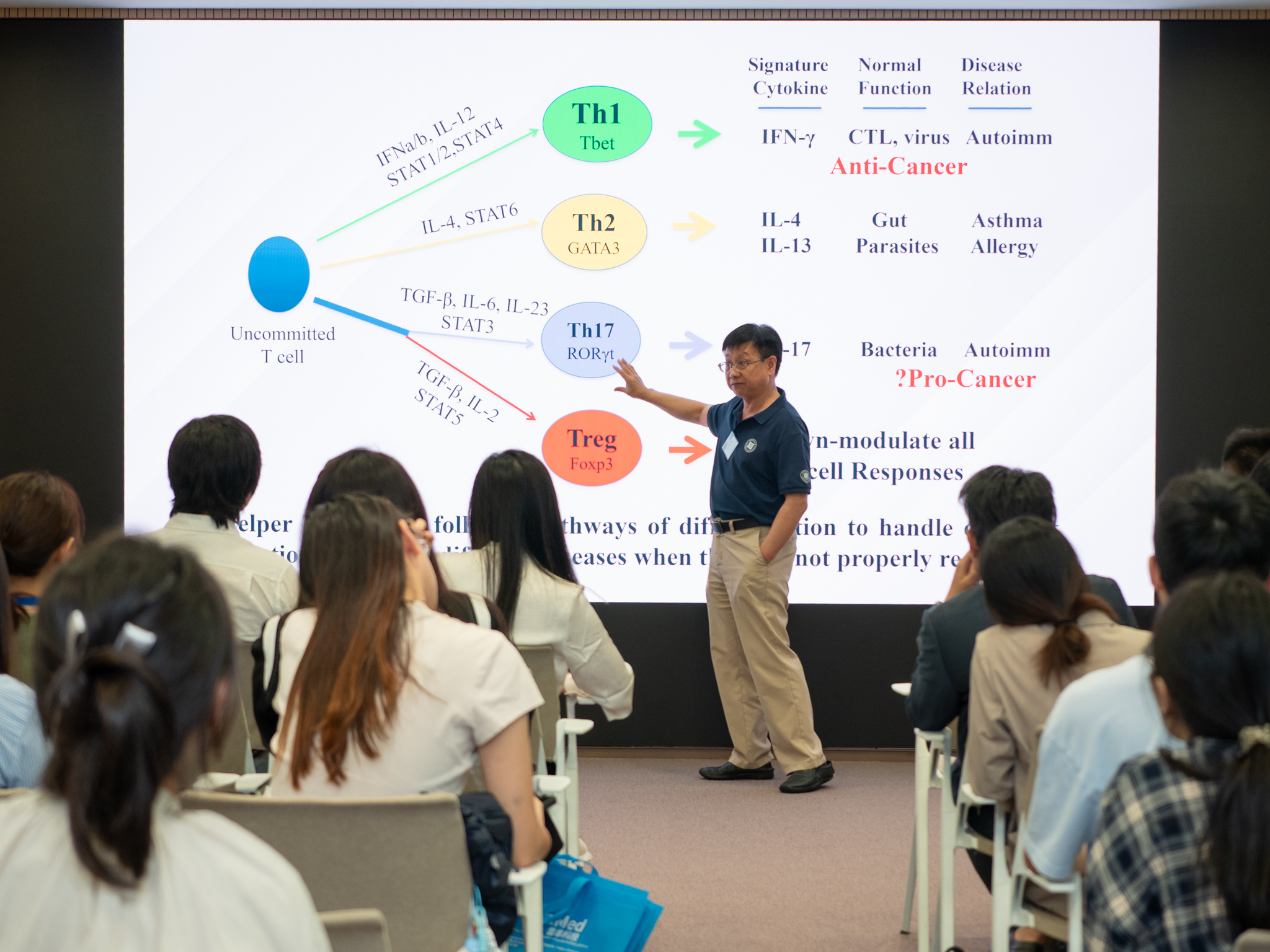
Finally, Prof. Pan Fan, a Chair Professor at the Shenzhen Institute of Advanced Technology (SIAT), Chinese Academy of Science / Shenzhen University of Advanced Technology, gave the concluding presentation, “Targeting Regulatory T cells to Enhance Antitumor Immunity.” Drawing on his profound experience of over two decades in the field of regulatory T cells (Tregs), he systematically explained the core regulatory mechanisms of the key transcription factor FOXP3. He also explored the therapeutic potential of either enhancing or suppressing Treg function to treat cancer and autoimmune diseases, respectively.
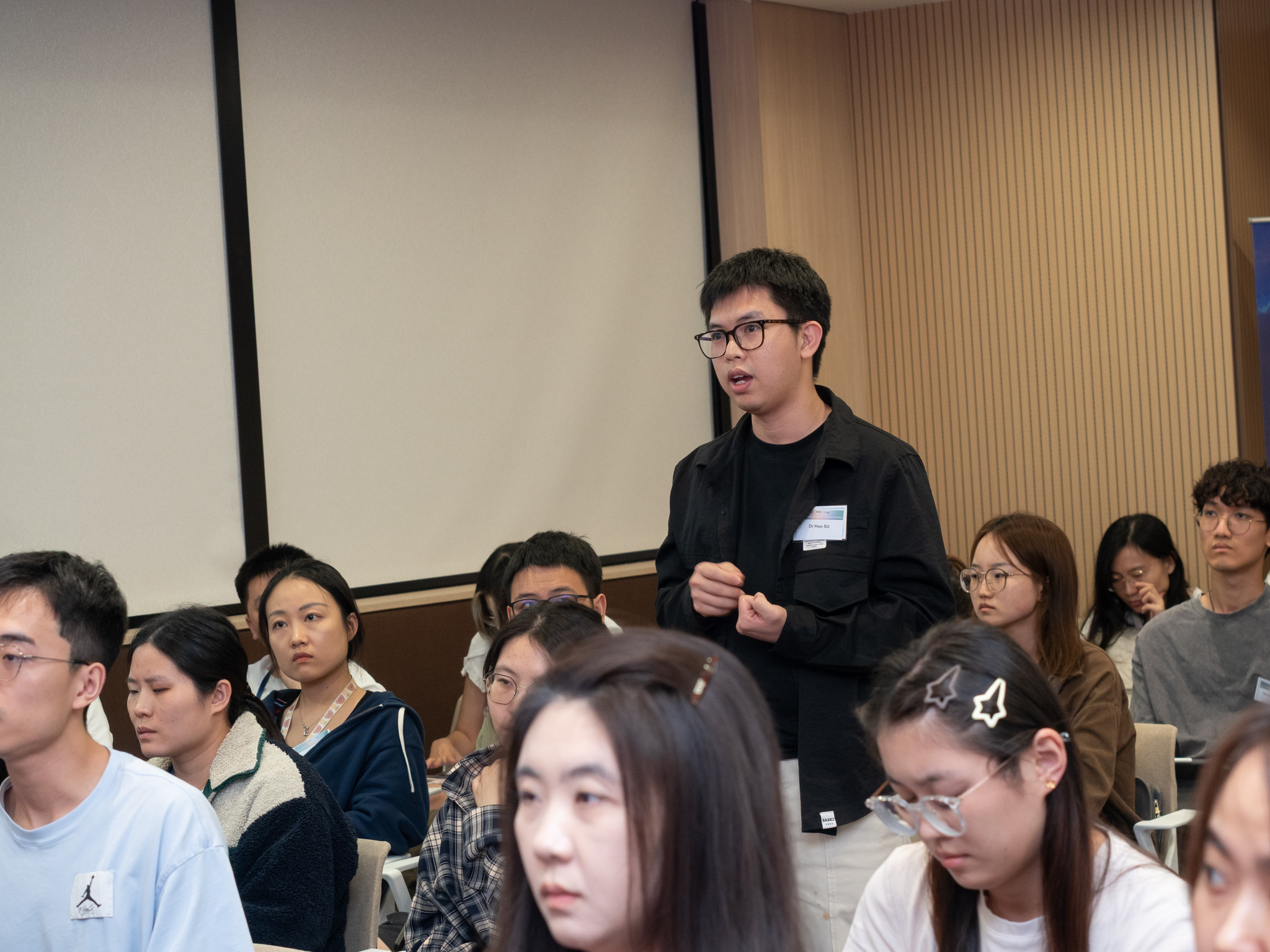
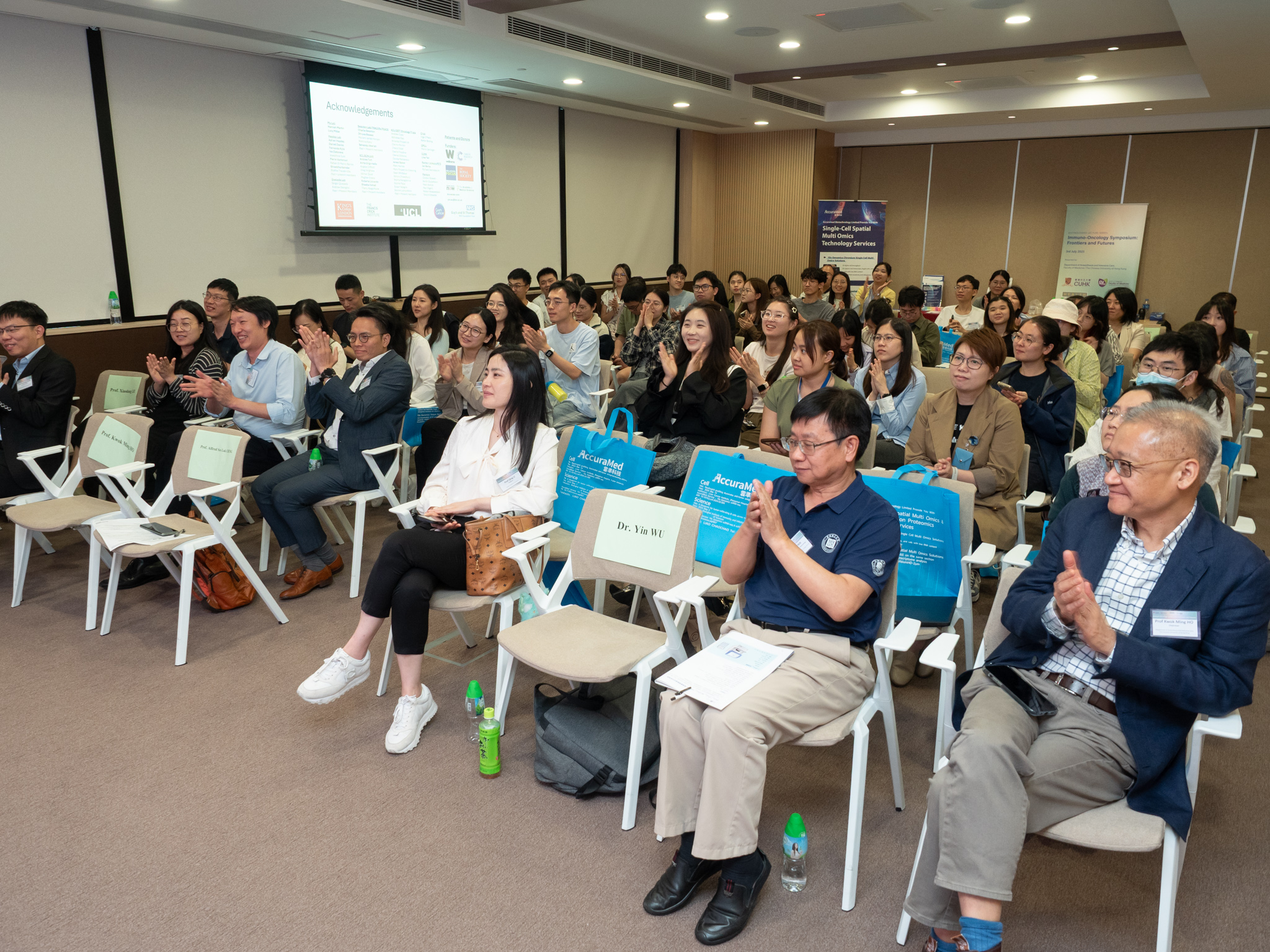
The event also featured a lively Q&A session, where each expert engaged in deep discussions with the audience on specific questions.
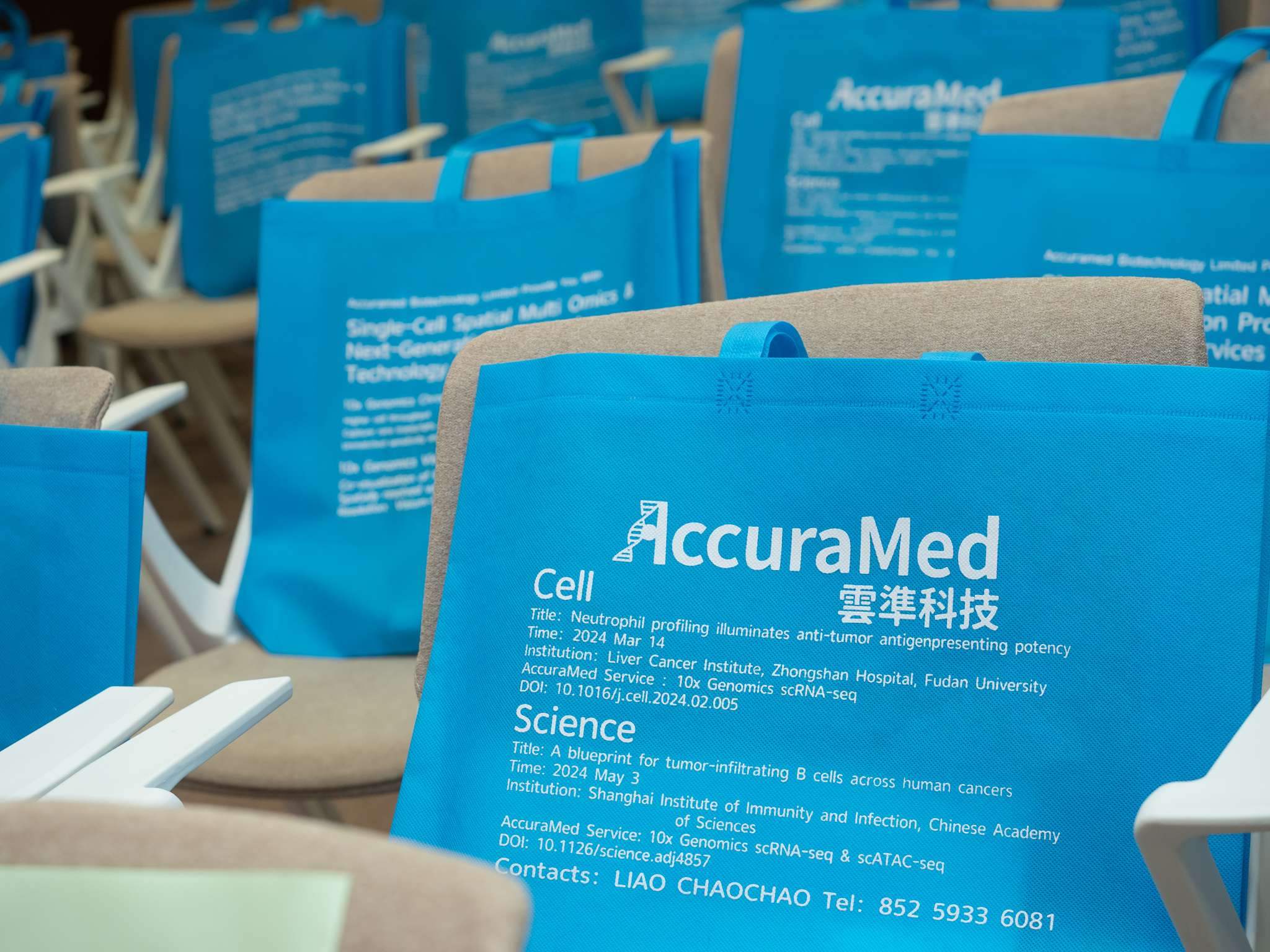
The success of this symposium was made possible by the dedicated support of the Department of Anaesthesia and Intensive Care at CUHK, the Li Ka Shing Institute of Health Sciences at CUHK, and the generous sponsorship of AccuraMed Techonology.
The Department of Anaesthesia and Intensive Care at CUHK will continue to build high-level international academic exchange platforms, inviting more leading scholars from China and around the world to Hong Kong to share their insights. Please follow the department’s official academic social media account for the latest information on frontier research!

